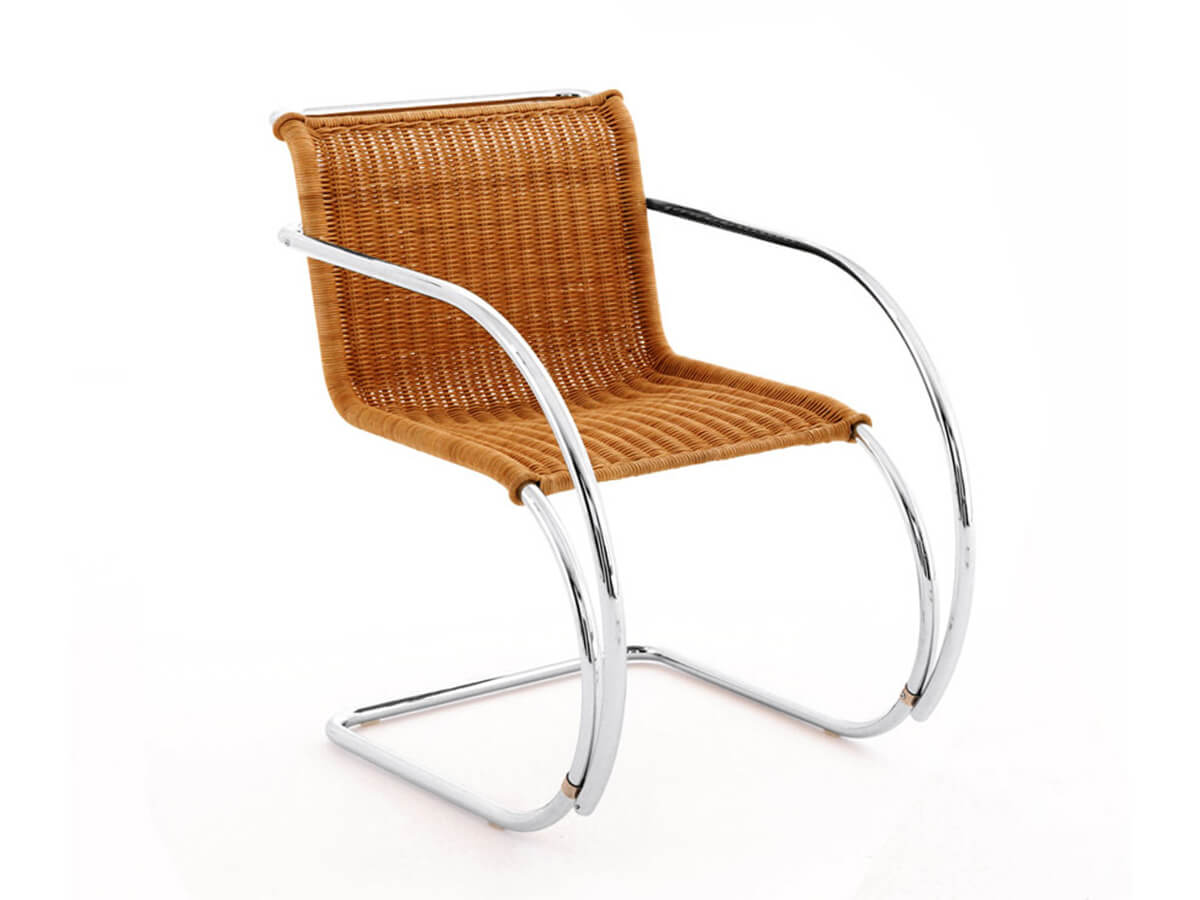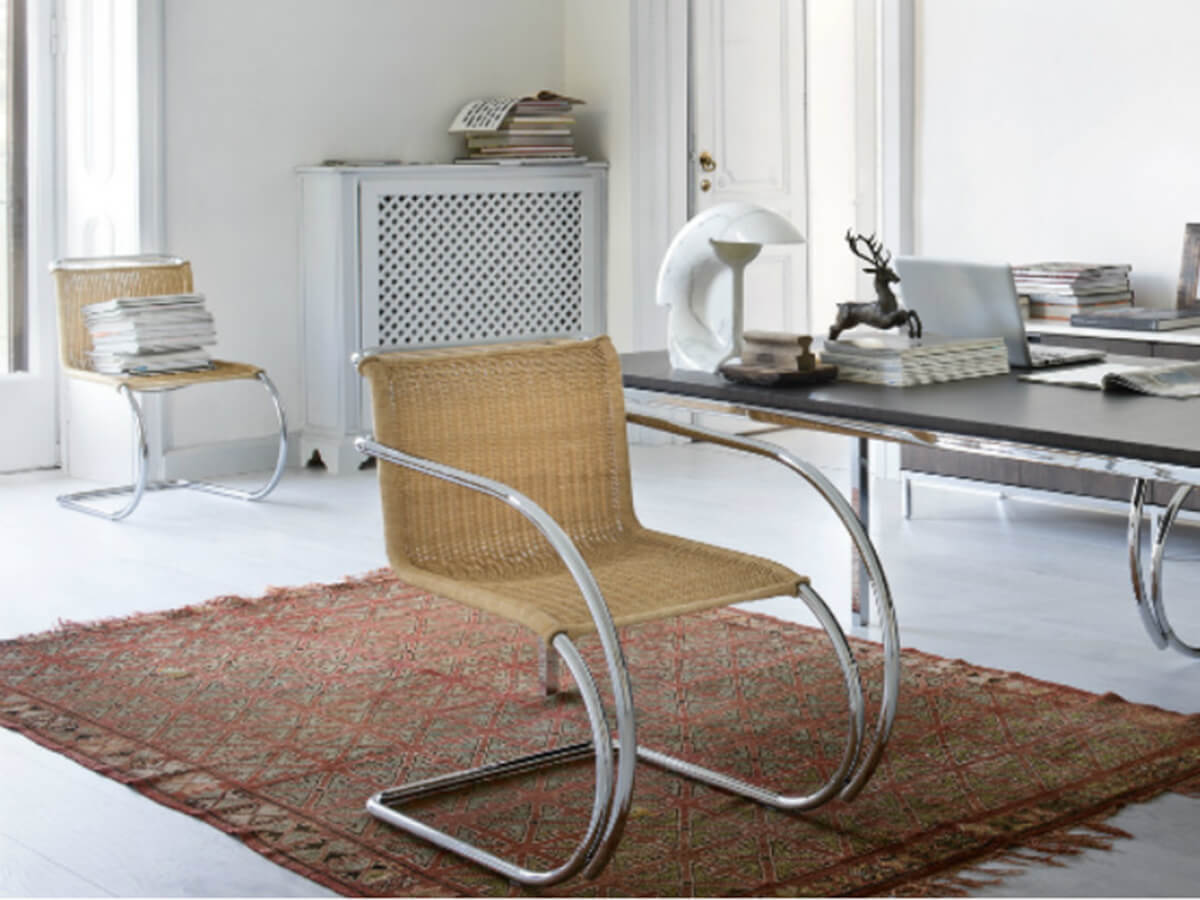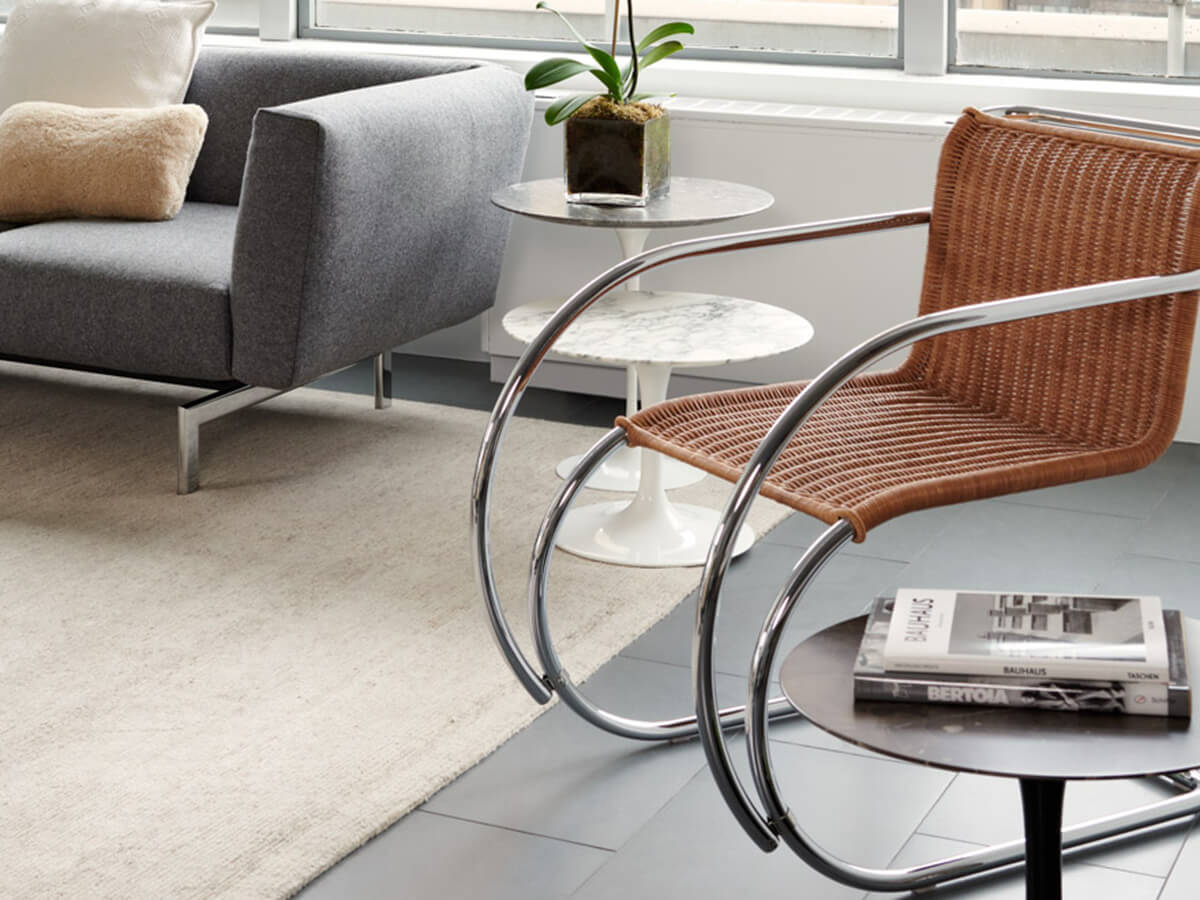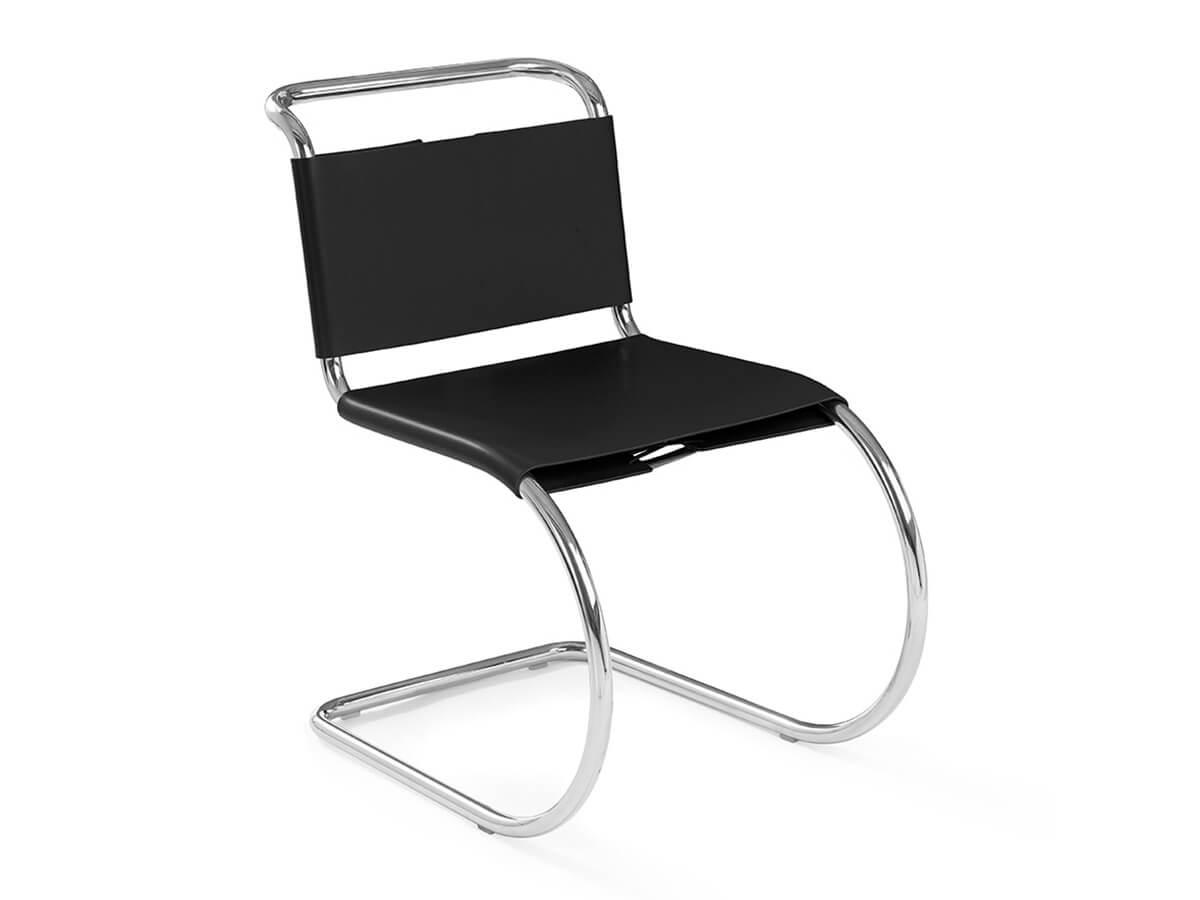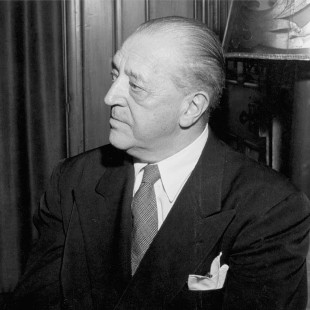Knoll
MR Chair
With Armrests
Price € 2.440,00
Mr Chair represents one of the first works by Mies van Der Rohe made in steel. Born in 1927, it is already distinguished by the peculiar minimalist and essential style that will later characterize every other work of the designer. Available with or without armrests, the tubular steel structure follows decisive lines derived from the classic iron armchairs of the nineteenth century. The seat and backrest are placed in the embrace of this solid yet incredibly light structure. Marcel Breuer, master of the Bauhaus style, apparently inspired the choice of the material originally used, now available in a large variety of fabrics and leathers. Iconic and versatile, Mr Chair is certainly a seat that is well suited to different styles and environments of the house.
W.53 x D.82,5 x H.79 cm
Seat Height 46 cm
Salvioni Design Solutions delivers all around the world. The assembly service is also available by our teams of specialized workers.
Each product is tailor-made for the personal taste and indications of the customer in a customized finish and that is why the production time may vary according to the chosen product.
To discover the full range of services available, visit our delivery page.
Suggested versions (2)
Select
Select
Select
Landed in the United States at the beginning of the ‘30s, Hans Knoll, a young German-born son of a furniture-maker in Stuttgart, proposed to import into the new continent the modern European design, contemporary heritage of the Bauhaus. Died prematurely, his work was continued by his wife, Florence Knoll, who succeeded in establishing lasting partnerships with some of the greatest exponents of the modernist movement. Few years later the Knoll Associates was founded. Today, Knoll is not only a company of re-selling historic furnishings of great artistic value, but continues to innovate by offering creations of the major international design brands both in the home area and in the office furnitures sector.Read more
Designed by
Ludwig Mies van der Rohe
Ludwig Mies van der Rohe (1886-1969) was one of the leading exponents of the Modern Movement, both in the field of architecture and design. His maxim “Less is More” can be considered the motto of this trend, constantly aimed at reducing decorative frills and looking for pure and functional forms. Born in Aachen, of humble origins (he was the son of a stonemason specializing in funeral monuments), Mies spent the most important years of his training in the studio of Peter Behrens, master of the Deutscher Werkbund, before starting a career on his own that will lead him to create iconic buildings such as the German Pavilion of the 1928 Barcelona Expo or, later, the Seagram Building in New York and the iconic Casa Farnsworth. He was director of the famous Bauhaus School from 1930 until it was closed by the Nazis, who also forced him to emigrate to the USA in the late 1930s. There he continued his career with great honors and met Florence Knoll, of whom he was master, who with his company still produces all the most famous furnishings he designed.Read more
